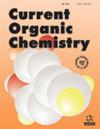Recent Innovations in Synthetic Methodologies and Patent Landscape of Quinoline Analogues: A Comprehensive Review
IF 2.1
3区 化学
Q3 CHEMISTRY, ORGANIC
引用次数: 0
Abstract
Quinoline is a general group of heterocyclic compounds that have garnered much interest in medicinal chemistry and drug development due to their wide range of pharmacological effects. Pyridine ring fused with benzene defines the class of chemical compounds known as quinolines. Quinoline is a weak tertiary base, also known as 1-aza-naphthalene. Numerous patents have been filed for the synthesis of quinoline-based compounds, discussing about their derivatives and uses. Here, we have discussed the methods of quinoline synthesis, structural alterations, and patents showing its importance in various industries. Quinolines have been investigated as antimalarial substances, with substances, like quinine and chloroquine, serving as notable examples, and they have also been investigated to possess anti-inflammatory, anti-tumor, and CNS activity. The synthesis of quinoline is also subjected to several recognized procedures. The variations in the ring system and various synthetic approaches are the key highlights of the article, and it includes the various catalysts that could be recycled and reused by the assisted technique, which increases the yield and requires less time for the synthesis (ultrasound-promoted synthesis, one-pot reaction, and microwave and photocatalytic reactions). The development of synthetic procedures can help in the sustainable synthesis of quinoline derivatives.喹啉类似物合成方法的最新创新和专利格局:全面回顾
喹啉是一类杂环化合物,因其广泛的药理作用而在药物化学和药物开发领域备受关注。吡啶环与苯的融合决定了这一类化合物被称为喹啉。喹啉是一种弱三级碱,也称为 1-氮杂萘。关于喹啉类化合物的合成以及其衍生物和用途,已经申请了大量专利。在此,我们讨论了喹啉的合成方法、结构变化以及显示其在各行业重要性的专利。喹啉类化合物曾被研究用作抗疟药物,如奎宁和氯喹,它们还被研究用于抗炎、抗肿瘤和中枢神经系统活性。喹啉的合成也有几种公认的程序。环系统的变化和各种合成方法是文章的主要亮点,其中还包括可通过辅助技术回收和重复使用的各种催化剂,这些催化剂可提高产量并缩短合成所需的时间(超声促进合成、一锅反应以及微波和光催化反应)。合成程序的开发有助于喹啉衍生物的可持续合成。
本文章由计算机程序翻译,如有差异,请以英文原文为准。
求助全文
约1分钟内获得全文
求助全文
来源期刊

Current Organic Chemistry
化学-有机化学
CiteScore
3.70
自引率
7.70%
发文量
76
审稿时长
1 months
期刊介绍:
Current Organic Chemistry aims to provide in-depth/mini reviews on the current progress in various fields related to organic chemistry including bioorganic chemistry, organo-metallic chemistry, asymmetric synthesis, heterocyclic chemistry, natural product chemistry, catalytic and green chemistry, suitable aspects of medicinal chemistry and polymer chemistry, as well as analytical methods in organic chemistry. The frontier reviews provide the current state of knowledge in these fields and are written by chosen experts who are internationally known for their eminent research contributions. The Journal also accepts high quality research papers focusing on hot topics, highlights and letters besides thematic issues in these fields. Current Organic Chemistry should prove to be of great interest to organic chemists in academia and industry, who wish to keep abreast with recent developments in key fields of organic chemistry.
 求助内容:
求助内容: 应助结果提醒方式:
应助结果提醒方式:


